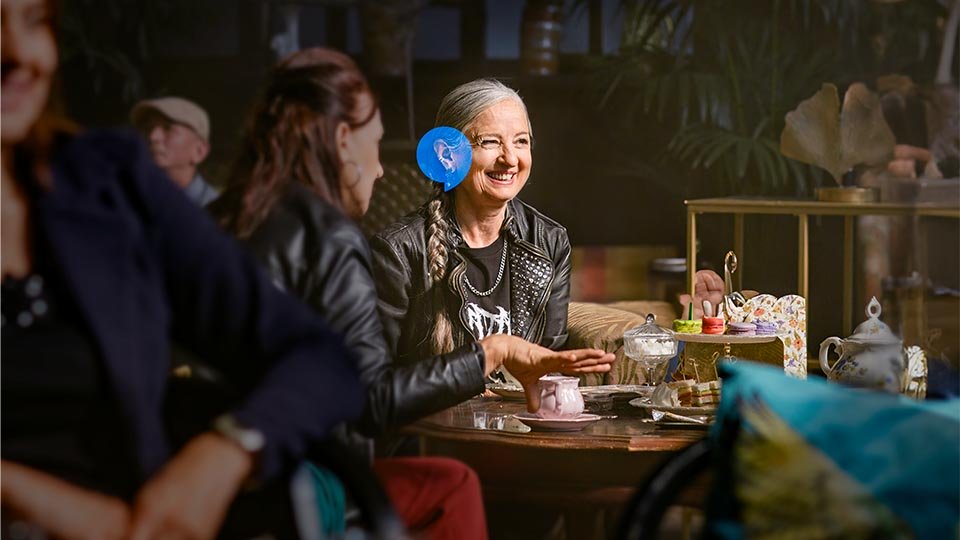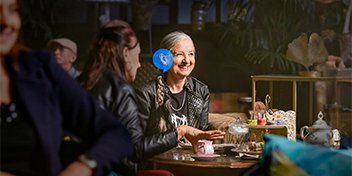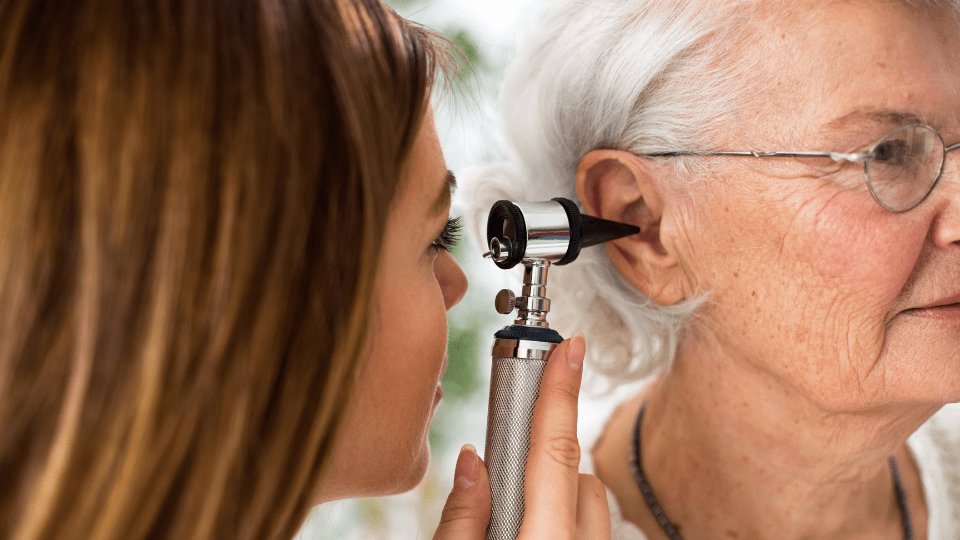Australians appear to be neglectful when it comes to the prevention and management of hearing loss, a new survey1 released today by Audika suggests.
The survey showed that 88% of Australian respondents over the age of 40 are more concerned about their eyesight fading, than having a hearing loss.
88% per cent of Aussies surveyed are more concerned about their eyesight fading than having a hearing loss.
The survey also showed that over a third of people surveyed (34%) over the age of 40 admit that they are probably hard of hearing but have never been tested or sought treatment. 61% of respondents admitted they are unlikely to undergo a hearing test in the next 12 months. And a further 37% of those who don’t wear hearing aids agreed that they would benefit from doing so.
Shockingly, more than half (51%) of the survey respondents said that they would avoid wearing a hearing aid for as long as possible, even if they were diagnosed with hearing loss, with those respondents citing they are too expensive (52%) and they would be too uncomfortable (51%) as their main justification. Sadly, a further 42% of the respondents who said they would avoid wearing a hearing aid thought hearing aids would make them feel self-conscious or embarrassed or make them look older than they are (35%).
61% of Aussies surveyed are unlikely to undergo a hearing test in the next 12 months
Poor hearing can affect quality of life.
Hearing loss can affect people’s day-to-day lives in so many ways. In fact, 69% of the survey respondents with a hearing loss or a suspected hearing loss reported that it negatively affects different aspects of their life, including their personal relationships (35%), social life (35%) and
career (19%).
Those survey respondents that cited having a degree of hearing loss said they sometimes find it difficult to communicate with others (66%), they often withdraw from social events (71%), they feel like people don’t always understand them (70%), and they are becoming less confident in social situations (73%). Sadly, 1 in 4 of respondents with hearing loss or a suspected hearing loss reported having had jokes made at their expense by friends or family members.
One third of Aussies surveyed admit they are likely hard of hearing but have never been tested or sought treatment.
The survey responses also demonstrated that while digital transformation in the workplace has brought new graces, it has also introduced new challenges for people who are hard of hearing. Of the survey respondents with a hearing loss or a suspected hearing loss who were employed and able to work from home, they commented that the benefits included not having ‘to interact with people face-to-face’, being able to ‘speak louder on the phone’, and also being able to ‘use subtitles on phone calls’. On the other hand, other survey respondents felt that remote working was challenging for them because ‘I cannot always hear clearly what people are saying and I have to ask them to type it in the chat box’, ‘I find it very difficult to hear’, and it can be ‘lonely’ and ‘isolating’.
Prevention is key.
By 2050, it is estimated that 1 in 4 people worldwide2 will be living with hearing loss – and as many as a third may be undiagnosed and untreated.2 Hearing makes a significant difference in helping us to enjoy life’s exciting events. Music concerts and festivals are but a few examples of these exciting times. However, the results of Audika’s recent survey indicate that 70% of the survey respondents say they have never worn hearing protection at a concert.
Preventing permanent hearing loss starts with taking our hearing health seriously and making changes to protect ourselves for the long term.
Lauren McNee, Audiologist and Clinical Trainer at Audika, says that,
"it’s absolutely imperative that people take the appropriate measures to prevent and manage the symptoms of hearing loss, to ensure they don’t spiral into other serious health conditions”.
“Poor hearing, if untreated, is linked to a number of other health conditions, including mental health challenges. The results of the recent survey indicate that Aussies don’t seem to be aware of how common hearing loss can be. They also appear to be unaware of the serious daily impacts that are felt by people that are hard of hearing, and their loved ones.”
“Unfortunately, stigma surrounding hearing health is still prevalent across our society – yet more than half (51%) of the survey respondents said that they have a loved one that experiences it. With greater understanding of the impacts of hearing loss and compassion for each other, we can work towards more open conversations around hearing loss and encourage those we care about to be more proactive with their hearing health,” says Lauren McNee.
Interestingly, an earlier study conducted by YouGov Analysis Institute in 2021 showed that over a third (37%) of their Australian survey respondents that were hearing aid wearers reported being happier than before their hearing loss was diagnosed,3 and nearly 1 in 5 reported a ‘lifechanging’ difference.3
This World Hearing Day, Audika encourages all Australian’s to ‘Love Your Ears’, and take this opportunity to encourage loved ones to prioritise their hearing health too. Book a FREE hearing check (for adults over 26) or take Audika’s five-minute online hearing test.
Regular hearing health checks can help you keep on top of your hearing health. Book your FREE appointment today.
Book online Request a call back
1 An online survey was scripted and hosted by Decibel Research, an independent research services provider. A nationally representative sample of n=1,020 Australians aged 40+ were selected via randomisation to participate by the research panel provider Pureprofile. Fieldwork was conducted from 9 February to 13 February 2023.
2 World Report on Hearing, 2021. World Health Organisation.
3 An earlier survey was conducted by the YouGov analysis institute, a private research group. A total of 24,041 people aged 18+ across 14 countries were interviewed using CAWI methodology during the period of 2 – 28 December 2021, including 2,425 Australians.



